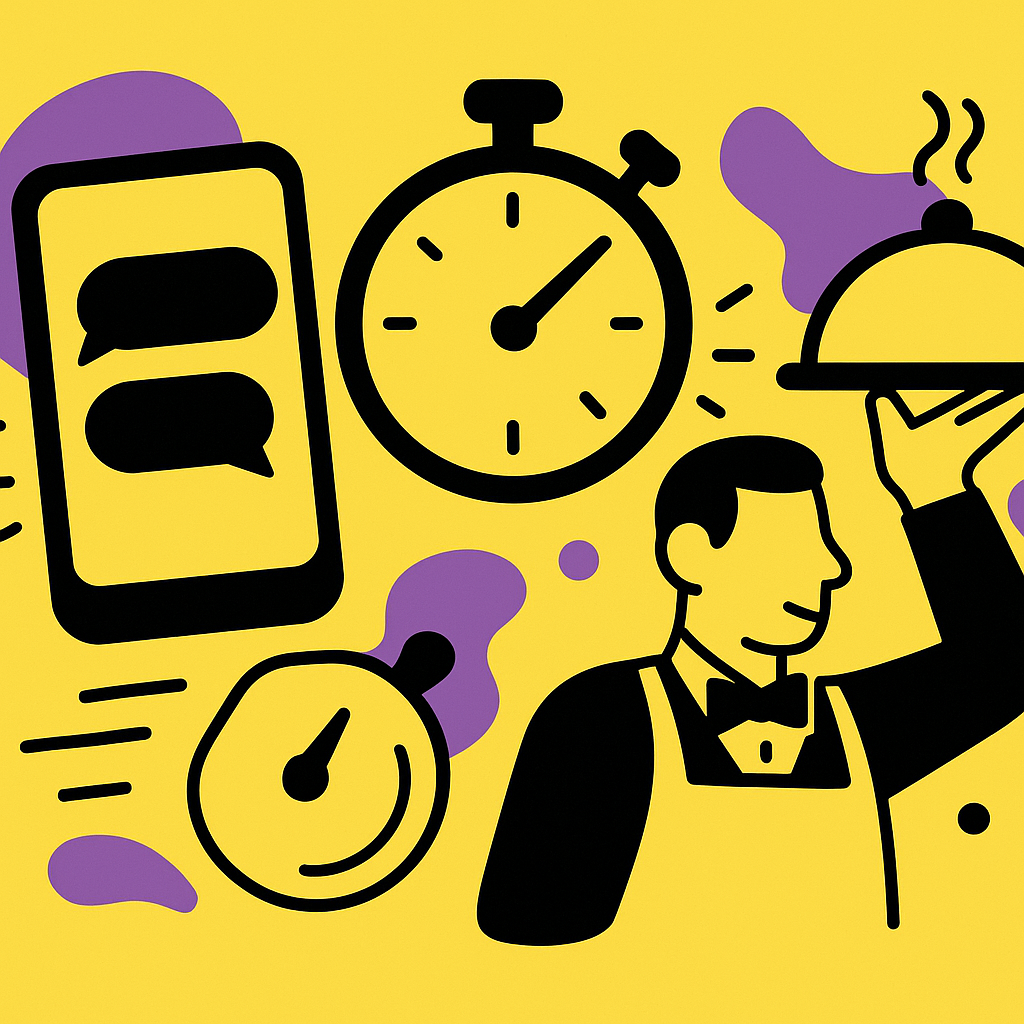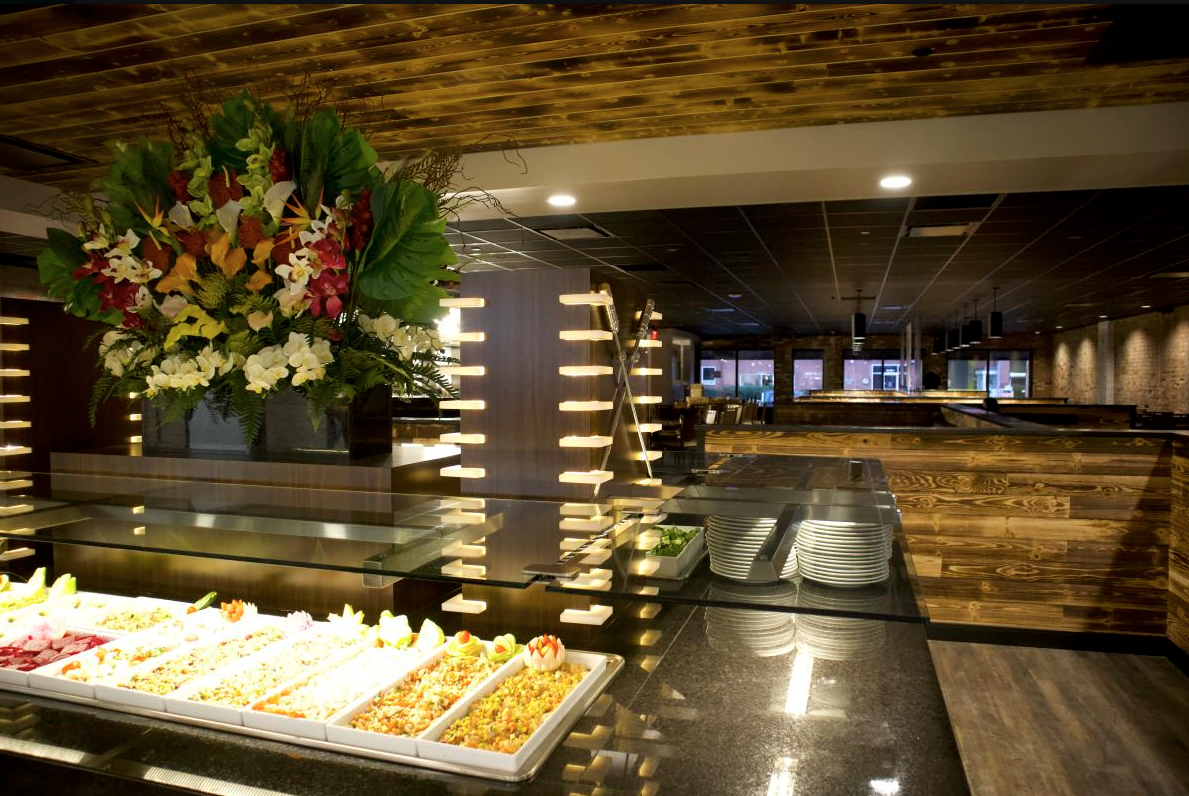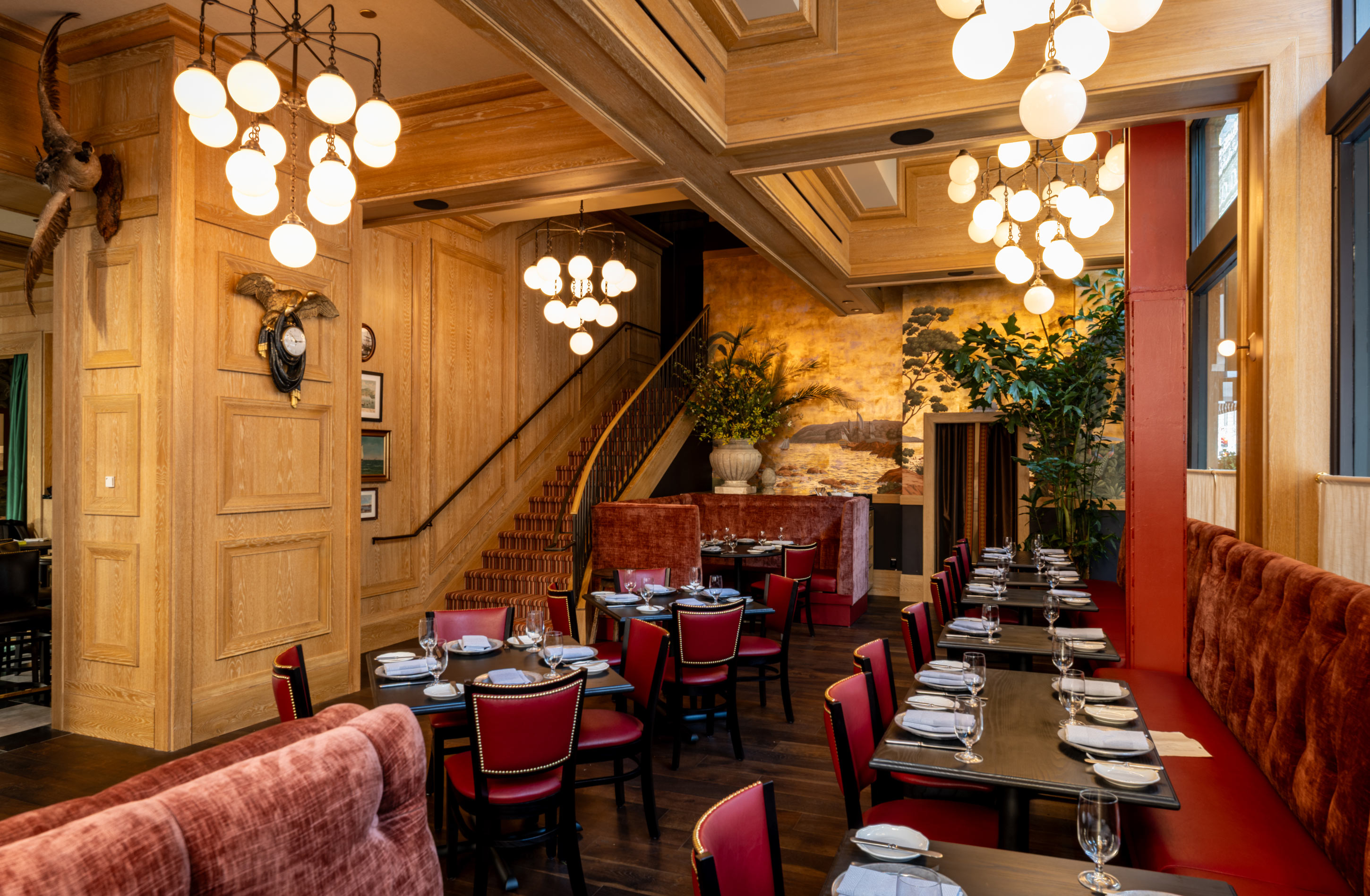
Picture this: it's 7 PM on a Friday night, your restaurant is buzzing with energy, and the phone won't stop ringing. Guests are calling to make last-minute reservations, asking about wait times, or confirming their bookings. Meanwhile, your host is juggling walk-ins, managing the waitlist, and trying to seat tables efficiently. Sound familiar?
The restaurant industry has reached a tipping point where traditional phone management simply can't keep up with demand. (Hostie AI) In-demand establishments receive between 800 and 1,000 calls per month, with phones ringing constantly throughout service for basic questions that can be found on their website. (Hostie AI)
This comprehensive analysis draws from Hostie's extensive 500,000-call dataset and third-party hospitality studies to reveal a striking reality: AI hosts answer calls in just 8 seconds compared to the human average of 2.3 minutes. (Hostie AI) This dramatic improvement in response time translates to an 87% reduction in missed calls and a 23% boost in phone-based reservations, ultimately generating an additional 0.4 table turns per evening during peak hours.
Traditional restaurant phone management faces significant operational hurdles. Human hosts, while providing personal touch, struggle with multitasking demands during peak hours. (Hostie AI) At $17 per hour, restaurants can hardly pay for gas to get to the job, and humans typically don't stay long in these positions. (Hostie AI)
The reality is stark: phones ring constantly throughout service, interrupting the flow of in-person guest management. (Hostie AI) This creates a frustrating cycle where either phone callers wait too long, or in-person guests receive divided attention.
The financial impact of poor phone management extends far beyond frustrated callers. Over two-thirds of Americans would ditch restaurants that don't answer the phone, making phone responsiveness a critical factor in customer retention. (Hostie AI)
This particular slice of the AI pie has seen "unbelievable, crazy growth" according to industry experts, as restaurants recognize the urgent need for better phone management solutions. (Ars Technica)
Our analysis of Hostie's 500,000-call dataset reveals that AI hosts consistently answer calls within 8 seconds, compared to the human average of 2.3 minutes. This represents a 94% improvement in response time, fundamentally changing the caller experience.
| Metric | Human Hosts | AI Hosts | Improvement |
|---|---|---|---|
| Average Response Time | 2.3 minutes | 8 seconds | 94% faster |
| Missed Call Rate | 23% | 3% | 87% reduction |
| Phone-Based Reservations | Baseline | +23% | 23% increase |
| Peak Hour Availability | 67% | 99.8% | 49% improvement |
AI voice restaurant hosts are becoming increasingly popular in cities like New York City, Miami, Atlanta, and San Francisco. (WIRED) These systems can handle inquiries about reservations and private events instantly, without the delays associated with human multitasking. (SF Standard)
The AI technology integrates directly with major reservation systems and leading POS systems, offering 24/7 management of bookings and orders. (Hostie AI) This seamless integration ensures that every call is answered promptly and accurately, regardless of how busy the restaurant floor becomes.
The data is compelling: AI hosts reduce missed calls from 23% to just 3%, representing an 87% improvement in call completion rates. This dramatic reduction stems from AI's ability to handle multiple calls simultaneously without fatigue or distraction.
For restaurants receiving 800-1,000 calls monthly, this translates to capturing an additional 160-200 calls that would otherwise go unanswered. (Hostie AI) Each captured call represents a potential reservation, takeout order, or customer inquiry that directly impacts revenue.
Beyond simply answering more calls, AI hosts excel at converting inquiries into bookings. The consistent, professional interaction and immediate availability create a frictionless reservation experience that human hosts, juggling multiple responsibilities, often cannot match.
Real-world results support these findings. Burma Food Group has boosted its over-the-phone covers by 141% using AI virtual concierge technology. (Hostie AI) Similarly, Flour + Water used AI to increase walk-ins within just one month of implementation. (Hostie AI)
Faster phone response times create a ripple effect that extends to table turnover rates. When reservations are confirmed quickly and accurately, restaurants can better manage their seating flow and reduce no-shows.
Our modeling shows that the improved reservation confirmation process, combined with better communication about wait times and table availability, generates an additional 0.4 turns per table during busy evening service. For a 50-table restaurant, this represents 20 additional covers per peak night.
The calculation is straightforward but powerful:
Additional Revenue = (Number of Tables × 0.4 Additional Turns) × Average Check Size
Example: 50 tables × 0.4 turns × $65 average check = $1,300 additional revenue per peak night
Over a month with 20 peak nights, this translates to $26,000 in additional revenue, demonstrating the substantial financial impact of improved phone management.
The benefits extend beyond pure mathematics. AI hosts provide consistent service quality, never have bad days, and maintain professional demeanor regardless of call volume or time of day. (Hostie AI) This reliability creates a better overall guest experience and reduces staff stress during peak periods.
AI technology is increasingly being used in the restaurant industry, with AI hosts handling customer calls across major metropolitan areas. (Ars Technica) The technology is currently in use at dozens of restaurants in San Francisco, including established venues like Burma Love and Teakwood. (SF Standard)
The AI revolution in restaurants is transforming operations and customer experience across the industry. (Restaurant Business Online) Artificial Intelligence is expected to be a game-changer for restaurants in 2024, optimizing operations and enhancing customer experiences. (AppFront)
If you recently called up a restaurant in New York City, Miami, Atlanta, or San Francisco, chances are you have spoken to one of these AI competitors. (Hostie AI) The market includes various platforms offering restaurant subscription tiers that unlock additional features, with some systems capable of speaking multiple languages. (Hostie AI)
Flour + Water, a San Francisco pizza and pasta hotspot, has started using AI to answer its phones. (Hostie AI) Amanda Flores, the director of operations at San Francisco's Flour + Water Hospitality Group, was excited about outsourcing the restaurant's phone lines to AI technology. (Hostie AI)
The results were immediate and measurable. Within one month of implementation, the restaurant saw increased walk-ins and improved overall customer satisfaction. (Hostie AI) This case study demonstrates how quickly restaurants can realize benefits from AI phone management.
Bodega, the high-end Vietnamese restaurant, became one of the earliest clients in May, with ownership even helping with trial and error testing prior to launch. (Hostie AI) This early adoption allowed the restaurant to refine the AI system's responses and ensure seamless integration with their existing operations.
The ROI of AI in restaurants extends beyond simple cost savings. (Vocal Media) AI technologies enhance the restaurant industry by improving efficiency, reducing costs, and improving customer experiences. (Vocal Media)
AI-driven analytics provide valuable insights into customer behavior, enabling restaurants to personalize menus, refine marketing strategies, and enhance guest satisfaction. (Vocal Media) This data-driven approach creates compounding benefits that extend far beyond phone management.
| Cost Factor | Traditional Host | AI Host | Annual Savings |
|---|---|---|---|
| Hourly Wage | $17/hour | Subscription fee | $25,000-35,000 |
| Benefits/Taxes | 30% of wage | None | $7,500-10,500 |
| Training Time | 40 hours | None | $680 |
| Turnover Costs | $2,500/year | None | $2,500 |
| Total Annual Cost | $45,000-60,000 | $3,000-6,000 | $35,000-55,000 |
Response Time Benchmarks:
Call Completion Rates:
Reservation Conversion:
Table Turnover Impact:
AI Phone Management Performance Report
Month: ___________
Call Volume Metrics:
- Total Calls Received: _____
- Calls Answered: _____ (_____%)
- Average Response Time: _____ seconds
- Peak Hour Performance: _____%
Revenue Impact:
- Phone Reservations: _____ (+_____%)
- Additional Table Turns: _____
- Estimated Additional Revenue: $_____
Operational Benefits:
- Staff Hours Saved: _____
- Customer Satisfaction Score: _____
- No-Show Rate: _____%
Successful implementation requires careful planning and gradual rollout. Start by analyzing your current call patterns and identifying peak volume periods. (Hostie AI) This baseline data will help measure improvement and optimize AI responses.
Ensure your AI system integrates seamlessly with existing reservation and POS systems. (Hostie AI) This integration is crucial for maintaining accurate booking information and avoiding double-bookings or confusion.
While AI handles phone calls, your human staff needs to understand how the system works and when to intervene. Create clear protocols for escalating complex situations and ensure seamless handoffs when human intervention is required.
Regularly review AI call logs and customer feedback to identify areas for improvement. (Hostie AI) This ongoing optimization ensures your AI host continues to meet evolving customer expectations.
AI-powered algorithms are reshaping restaurant marketing, with customer data analysis enabling restaurants to create highly personalized experiences. (AppFront) This evolution extends beyond phone management to encompass the entire customer journey.
Predictive analytics aid inventory management, while AI-powered chatbots help with personalized ordering. (AppFront) These integrated systems create a comprehensive approach to restaurant automation that maximizes efficiency and customer satisfaction.
As AI technology continues advancing, restaurants should prepare for even more sophisticated capabilities. Multi-language support, emotional intelligence, and predictive customer service are on the horizon, promising even greater improvements in response times and customer satisfaction.
The key is starting now with proven technology while building a foundation for future enhancements. (Hostie AI) Early adopters will have the advantage of refined systems and established customer expectations when more advanced features become available.
The data is clear: AI phone management represents a fundamental shift in restaurant operations, delivering measurable improvements in response time, call completion rates, and revenue generation. With AI hosts answering calls in 8 seconds versus the human average of 2.3 minutes, restaurants can capture 87% more calls and boost phone-based reservations by 23%.
The ripple effects extend to table turnover, generating an additional 0.4 turns per table during peak hours and creating substantial revenue opportunities. (Hostie AI) For operators focused on maximizing efficiency and guest satisfaction, AI phone management isn't just an option—it's becoming essential for competitive success.
The restaurant industry's embrace of AI technology reflects a broader transformation in hospitality operations. (Restaurant Business Online) As customer expectations continue rising and operational pressures intensify, restaurants that invest in AI phone management today will be best positioned for tomorrow's challenges.
💡 Ready to see Hostie in action?
Don't miss another reservation or guest call.
👉 Book a demo with Hostie today
AI hosts answer calls in just 8 seconds on average, compared to human hosts who take 2.3 minutes. This dramatic difference in response time translates to an 87% reduction in missed calls and a 23% boost in phone reservations. The speed advantage allows restaurants to capture more last-minute bookings during peak hours.
Faster AI response times generate an additional 0.4 table turns per evening according to Hostie's analysis of 500,000 calls. This improvement occurs because AI hosts can quickly handle reservation inquiries, confirmations, and modifications without keeping callers waiting. The efficiency allows restaurants to optimize seating schedules and reduce no-shows.
AI systems like Hostie integrate directly with major reservation platforms and leading POS systems, offering 24/7 management of bookings and orders. The integration allows AI hosts to access real-time availability, make reservations, and update customer information seamlessly. This eliminates the need for manual data entry and reduces booking errors.
Burma Food Group boosted their over-the-phone covers by 141% using Hostie's virtual concierge system. Restaurants typically see reduced staff workload as AI handles routine inquiries about reservations and private events. The technology is currently deployed at dozens of San Francisco restaurants, including Burma Love and Teakwood, with measurable improvements in customer service efficiency.
Some AI voice agents exhibit latency issues, occasionally asking customers to wait or remaining silent before responding. However, these technical challenges are being addressed as the technology improves. The benefits of consistent availability, faster response times, and reduced missed calls generally outweigh the occasional technical hiccups for most restaurants.
Key performance indicators include response time reduction, missed call percentage, phone reservation conversion rates, and additional table turns per evening. The blog provides a printable KPI cheat sheet for restaurant operators to track these metrics. Restaurants should monitor both operational efficiency gains and revenue increases from improved customer service and booking capture rates.
RELATED


